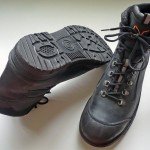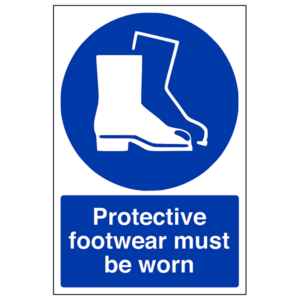Only one fifth of non registered safety footwear is protecting wearers, a study has revealed
Only one fifth of people who buy safety footwear are actually protected in the way advertised, a study has revealed.
 The British Safety Industry Federation (BSIF) found just five of 42 safety footwear products by non-Registered Safety Suppliers provided the protection promised.
The British Safety Industry Federation (BSIF) found just five of 42 safety footwear products by non-Registered Safety Suppliers provided the protection promised.
The testing covered the regulatory requirements on both product performance claims and on the required supporting documentation.
The BSIF said it is concerned that such an ‘alarming’ number of products produced by non-members fails to perform as advertised.
“Not fit for purpose”
CEO Alan Murray said: “Foot injuries are commonly suffered by workers and it is crucial that all safety footwear is correctly tested and certified to meet the required standards.

Alan Murray, CEO of BSIF
“A significant amount of footwear on the UK market currently is not fit for purpose – including many products that claim to be ‘unbreakable’ or ‘indestructible’ but failed key tests.
“PPE used at work must carry a UKCA or CE mark that shows the product meets the minimum legal requirement for its design as well as basic requirements for health and safety.
“Sadly, non-compliant and, on occasions, even counterfeit products are on the rise. We advise anyone responsible for buying and specifying safety footwear to look for the Registered Safety Supplier Scheme (RSSS) shield to help keep their staff safe and healthy in the workplace.”
Accreditation and ongoing testing
 Safety footwear is used to protect against hazards including slips, sharp objects, heavy loads, extreme temperatures, and chemicals.
Safety footwear is used to protect against hazards including slips, sharp objects, heavy loads, extreme temperatures, and chemicals.
PPE designed to protect against anything more than minor injury is classified as Category II or III.
These products must undergo a type-examination by an accredited testing body to ensure they meet their ‘Essential Health and Safety Requirements’ (EHSR) and category III products, which protect against permanent damage and death, require additional ongoing testing.
Manufacturers are then obliged to provide the Declaration of Conformity along with user instructions and technical documentation when selling these products in the UK.
As well as testing non-Registered Safety Suppliers between December 2021 and December 2022, the BSIF also tested registered suppliers.
Of these 108 tests, 90% met all requirements on product claims and documentation. Those who failed were told to rectify issues immediately to remain part of the scheme.
The BSIF offers membership of RSSS to manufacturers that commit to producing PPE that is fully compliant with all relevant standards and regulations and is appropriately UKCA or CE marked – and then monitors them.
Only one fifth of non registered safety footwear is protecting wearers, a study has revealed
Only one fifth of people who buy safety footwear are actually protected in the way advertised, a study has revealed.
Safety & Health Practitioner
SHP - Health and Safety News, Legislation, PPE, CPD and Resources Related Topics
Inclusivity in PPE: The manufacturer’s perspective
Future-proofing safety: Five trends shaping the PPE landscape of tomorrow
Arco backs SHP campaign for PPE inclusivity

 The
The 
 Safety footwear is used to protect against hazards including slips, sharp objects, heavy loads, extreme temperatures, and chemicals.
Safety footwear is used to protect against hazards including slips, sharp objects, heavy loads, extreme temperatures, and chemicals.